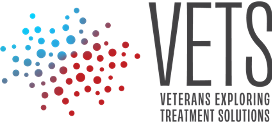
I felt that I had nothing to lose at that point. But when my treatment was a complete success, I knew we had to pay this forward to other combat veterans.
SAN DIEGO (PRWEB)
September 01, 2020
When he retired after 13 years and multiple overseas combat deployments as a U.S. Navy SEAL, Marcus Capone and his wife Amber thought that life would return to normal. Instead, their struggle had just begun. Marcus came home with debilitating depression, headaches, confusion, alcoholism, rage, forgetfulness, and suicidality. Marcus was diagnosed with posttraumatic stress disorder (PTSD), but it was more than PTSD. Brain scans showed that Marcus’ military career as an explosives expert, combined with his prior years of contact sports, had left him with both psychological wounds and the physical scars of traumatic brain injury (TBI).
Marcus was prescribed an armamentarium of antidepressants, mood stabilizers, sleeping pills, and wakefulness pills, but nothing worked. Amber and Marcus visited five top brain clinics, but found no solutions. After every conventional treatment option had failed, they were desperate to save Marcus and their marriage.
When all hope seemed lost, Amber learned about ibogaine, a plant-based psychedelic used traditionally in West African ceremonial settings that has been studied as a potential treatment for opioid addiction and other mental health conditions. Marcus traveled to a reputable independent clinic in Mexico to receive treatment with ibogaine as well as 5-MeO-DMT, another naturally occurring psychedelic compound, combined with holistic and talk therapies. Immediately after the sessions, Marcus’ cognitive functioning returned, he stopped drinking, and no longer relied on his prescriptions.
Marcus and Amber immediately dedicated themselves to finding out if psychedelic therapy could also help his fellow veterans and their families, many of whom also suffer the combined injuries of PTSD and TBI.
“I knew nothing about psychedelic-assisted therapies and honestly, I was extremely skeptical going in,” recalls Marcus. “After so many failed treatments, I felt that I had nothing to lose at that point. But when my treatment was a complete success, I knew we had to pay this forward to other combat veterans.”
In 2019, Marcus and Amber formed the non-profit Veterans Exploring Treatment Solutions, Inc. (VETS) to provide grants for veterans to receive psychedelic-assisted therapy treatment in countries where it is legal, but still unregulated. Since then, VETS, Inc. has raised and provided funds for 67 Special Operations veterans or their spouses to receive ibogaine- and 5-MeO-DMT-assisted therapy, and to receive preparation and integration coaching, with a current waitlist of over 80.
Now, to gather more evidence about ibogaine as a potential PTSD and TBI treatment option, VETS is supporting Stanford University researcher Dr. Nolan Williams’ upcoming observational and brain imaging study of the safety of ibogaine-assisted therapy in veterans with head trauma, combat, or blast exposure. In addition to psychological and cognitive testing of 30 veterans receiving ibogaine treatment in countries where the treatment is available, study participants will also receive magnetic resonance imaging (MRI) and electroencephalography (EEG) to explore possible brain changes associated with its use.
“We have been hearing stories from veterans who have returned from ibogaine treatment and have been amazed at their reported improvement,” says Dr. Nolan Williams, Director of the Stanford Brain Stimulation Lab. “Prior research has shown that ibogaine could play a role in enhancing neuroplasticity, and we’re eager to measure whether those changes in brain circuitry are associated with its reported therapeutic effects.”
Prior to the formation of VETS, Marcus and Amber led a grassroots effort that raised funding to help over 150 Special Operations veterans receive ibogaine and 5-MeO-DMT treatment outside the U.S. Qualitative interviews of over 50 of those veterans showed large and significant reductions in suicidal ideation and cognitive impairment, and in symptoms of PTSD, depression, and anxiety. The results were published in June 2020 in the peer-reviewed journal Chronic Stress.
With growing acceptance of psychedelic-assisted therapies for a variety of uses, including the FDA’s 2019 approval of ketamine for depression (Johnson & Johnson) and likely 2021 approvals of MDMA for PTSD (MAPS) and psilocybin for treatment-resistant depression (Compass), gathering reliable scientific data about the risks and effects of psychedelics on the brain is more vital than ever. VETS hopes that the upcoming Stanford study will contribute to the growing evidence base of ibogaine-assisted therapy and lay the groundwork for drug development clinical trials.
“Before Marcus received psychedelic-assisted therapy, our life was spiraling dangerously out of control,” said Amber. “For us, ibogaine therapy provided immediate relief. While psychedelics are typically used for repressed emotional trauma, we also witnessed a profound change in Marcus’s neurological functioning. Knowing that mild TBI is the signature injury of the conflicts in Iraq and Afghanistan, we felt compelled to further investigate. Founding VETS allows us to both help other combat veterans, and lead the way in finding treatments for root cause health challenges and ending the veteran suicide epidemic.”
ABOUT VETS, INC.
Founded in 2019, Veterans Exploring Treatment Solutions (VETS, Inc.) is a 501(c)(3) non-profit organization that provides resources, research, and advocacy to improve the quality of life for U.S. combat veterans and their families. VETS intends to change the landscape of veteran healthcare and end the veteran suicide epidemic by finding meaningful alternative solutions for mild traumatic brain injury (mTBI) and post-traumatic stress (PTS).
Prior to its incorporation, VETS was fiscally sponsored by the non-profit Multidisciplinary Association for Psychedelic Studies (MAPS). VETS has also partnered with Change Reaction to establish the VETS Angel Fund to provide grants for Special Operations personnel to receive psychedelic-assisted therapy to treat the mental and physical wounds of military service.
MORE INFORMATION
–Observational study published: “Psychedelic Treatment for Trauma-Related Psychological and Cognitive Impairment Among US Special Operations Forces Veterans” (Davis et al.), published July 8, 2020 in Chronic Stress
-Upcoming Stanford University brain imaging study: “An Observational Pre-post Study Evaluating the Safety of Tabernanthe Iboga Exposure” (clinicaltrials.gov)
Video: Marcus and Amber’s story
###

